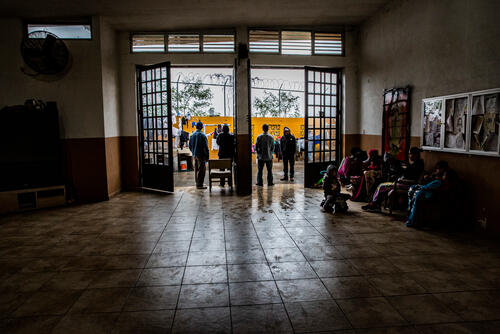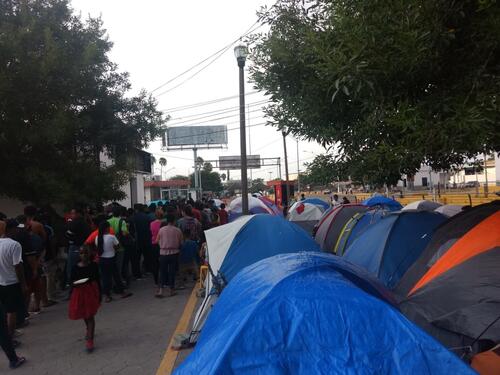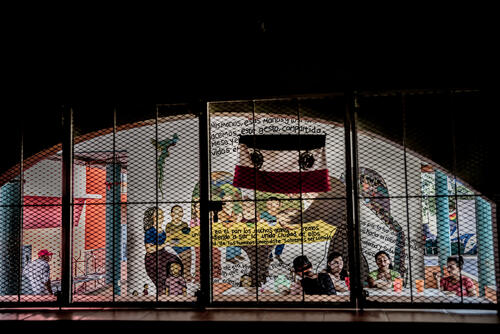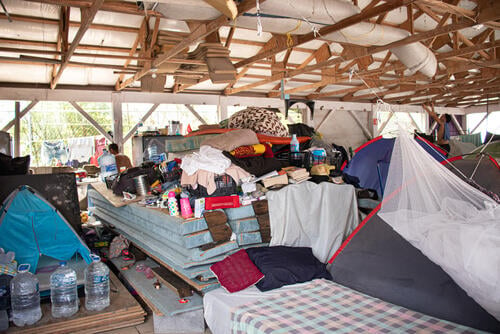- Mexico and the United States have expanded a migration policy that sends asylum seekers back to Nuevo Laredo, one of the most dangerous cities in Mexico.
- Refugees and asylum seekers often fall prey to criminal groups in the city and are exposed to violence, including extortion, torture, rape and murder.
- MSF denounces the policy and urges the US and Mexico to place humanitarian assistance at the centre of their migration policies.
Nuevo Laredo/New York -- Médecins Sans Frontières (MSF) has emphatically condemned the decision by the governments of Mexico and the United States to expand a policy that forces people seeking asylum in the US to wait out legal proceedings in violent areas of Mexico that puts them in extreme danger.
Both countries have agreed to expand the “Remain in Mexico” policy (officially known as the Migrant Protection Protocols) to Nuevo Laredo, a border city in Tamaulipas State, Mexico, that is controlled by criminal groups. Asylum seekers in Nuevo Laredo are constantly exposed to robbery, assault, extortion, kidnapping and homicide.
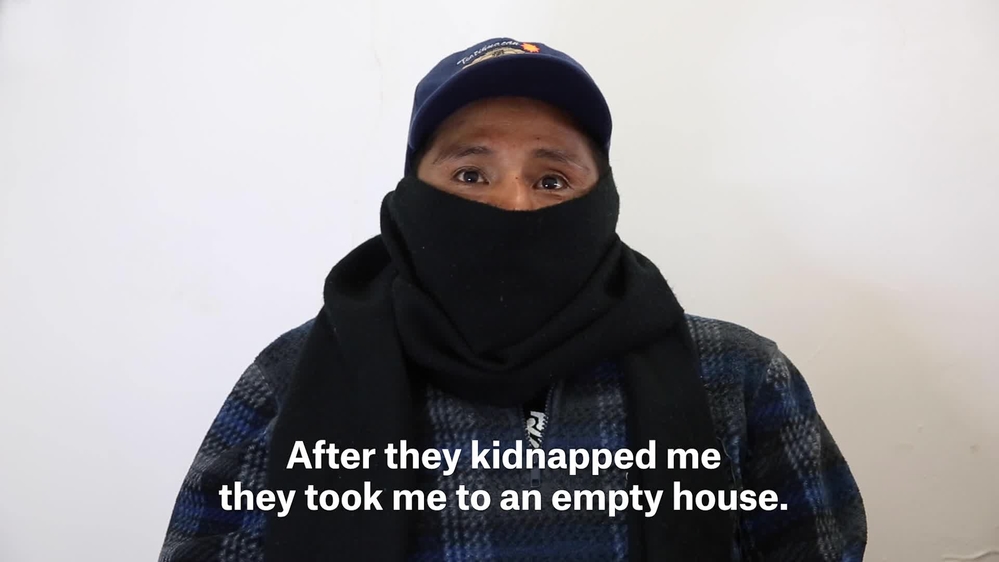
Kidnapped in Nuevo Laredo - Jose
“Sending people who are seeking asylum back to Mexico and forcing them to stay in Nuevo Laredo is an unacceptable policy,” said Maria Hernandez, of MSF Mexico. “This policy is placing vulnerable people in areas controlled by criminal organisations, which see migrants as a commodity and a source of income.”
MSF treats mental health consequences for refugees and migrants
From January to May 2019, MSF treated 378 people in Nuevo Laredo, of which:
45 %
45%
12 %
12%
We provide medical, mental health and social services support to migrants and refugees in various shelters in Nuevo Laredo, and the nearby cities of Reynosa and Matamoros.
According to MSF patient data from January to May 2019, more than 45 per cent of 378 patients treated by MSF in Nuevo Laredo have suffered at least one episode of violence in the city, as they waited to cross into the US. Of the 378 patients treated in MSF’s mental health programmes so far in 2019, 45 people (12 per cent) have been kidnapped—26 of them in the seven days prior to their mental health consultation.
“The majority of our patients don’t go out in the street due to the imminent risk of kidnapping. The asylum seekers we’re treating and counselling in Nuevo Laredo are from many countries, including Cuba, Democratic Republic of Congo, Cameroon, and Mexico,” said Hernandez. “Without a doubt, however, it’s people from Central America who are most vulnerable to kidnapping, and it is this very population which will be returned to Mexico in large numbers due to the Remain in Mexico policy.”
The majority of our patients don’t go out in the street due to the imminent risk of kidnapping.Maria Hernandez, MSF Mexico
Nuevo Laredo – and Mexico – is not a safe place to return refugees
Nuevo Laredo cannot become a reception city for people seeking asylum in the US and looking for protection, MSF warned.
“Mexico cannot be considered a “safe country” for people fleeing violence, and Tamaulipas is a good example of this,” said Hernandez.
Even the US State Department travel advisory system classifies Tamaulipas State as Category 4— the highest advisory level often used for countries at war—and warns people from the US to avoid all travel there due to high crime and the risk of kidnapping.
According to people we have treated, criminal groups target migrants and asylum seekers as soon as they arrive in Nuevo Laredo.
Mexico cannot be considered a “safe country” for people fleeing violence, and Tamaulipas is a good example of this.Maria Hernandez, MSF Mexico
“People are kidnapped at bus terminals,” said Hernandez. “There are ‘safe houses’ where they are detained for extortion, beaten and assaulted. Some endure death threats, they are detained for long periods for forced labour, they are sexually exploited or forcibly recruited by criminal organisations.”
Just last week, we denounced the recent raids and mass arrests of migrants carried out by Mexican authorities on the country’s southern border with Guatemala. These types of raids and arrests of migrants travelling on clandestine routes expose them to more dangers—including criminal gangs involved in human trafficking—and prevent them from accessing health services.
MSF calls on Mexican and US authorities to place the protection of human beings and humanitarian assistance at the centre of their migration policies. The decisions that these administrations have taken to confront this crisis are having devastating humanitarian consequences. They increase the suffering of thousands of people fleeing their countries, and put lives at risk.



